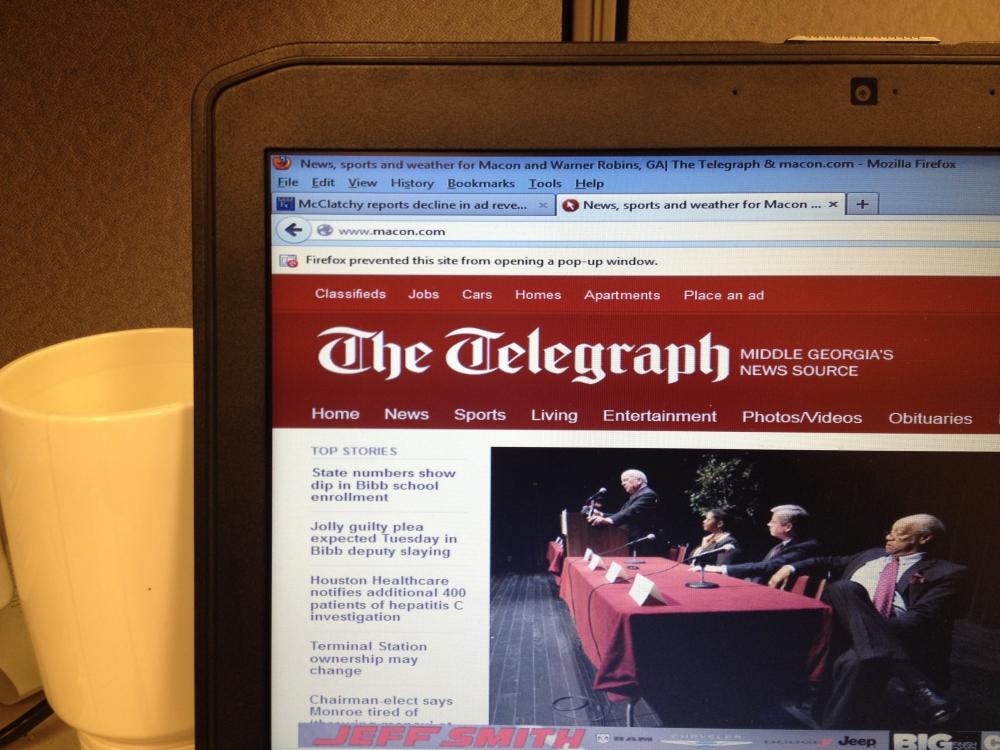
Section Branding
Header Content
Telegraph In Macon Erects Paywall
Primary Content

Macon.com, the web edition of the Telegraph newspaper, is going behind a paywall starting Wednesday in what is only the latest example of several Georgia papers adopting a model pioneered by the New York Times.
The Times' current model is commonly referred to as a "leaky" paywall, in which users get to look at a few stories for free per month (15 in the case of the Telegraph), after which they have to sign in.
The idea is to keep articles sharable by social media while getting regular users to pay.
Subscribers to the print edition pay a little extra for a username and password, while there's a lower price point available for those who only want the news online.
Telegraph parent company McClatchy instituted a similar paywall on the Ledger-Enquirer in Columbus earlier this year, while Morris Communications has done the same with its papers in Augusta and Savannah in recent months.
Telegraph publisher George McCanless says it's the way his industry is going.
"For at least the last five years we keep having this discussion of, you know, whether we should charge for our content, waiting for the right timing and I think the timing is right now," McCanless said.
McCanless says he anticipates the added revenue will be modest – about 5 to 10 percent of the revenue from print circulation.
Media-watcher Dan Kennedy, assistant professor at Northeastern University's School of Journalism in Boston, offers a cautious endorsement of the trend seen in Georgia.
"I think they may end up developing this as an additional small revenue stream," Kennedy said. "But if they think it’s going to save the enterprise they’re probably wrong."
Kennedy says the New York Times has proven itself to be among a handful of media companies than can get enough users to pay, while papers the size of the Telegraph tend to lose too many users to competing services, even if those competitors are relatively weak.
Tags: The Telegraph, media, Adam Ragusea, George McCanless
